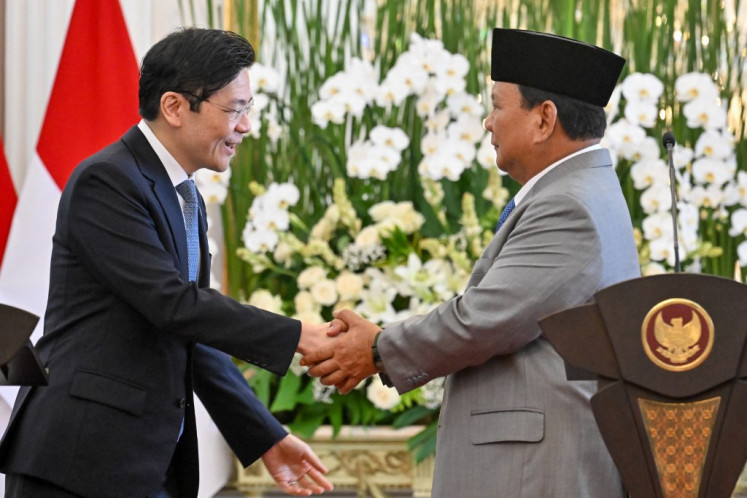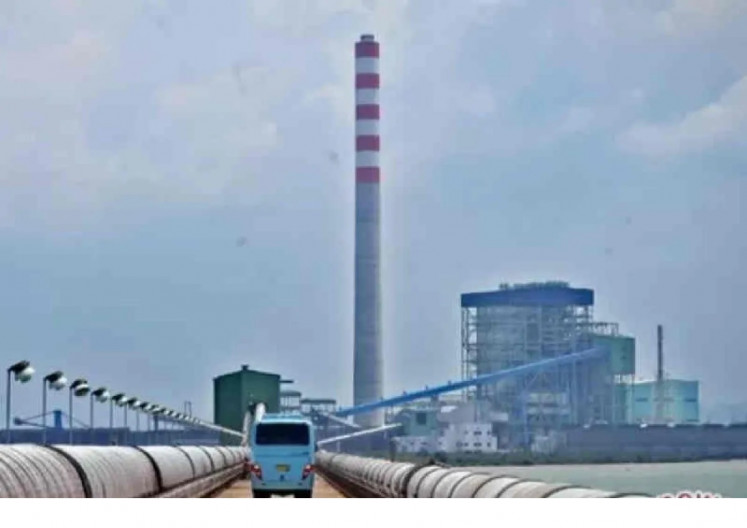Volkswagen to build assembly plant in RI
European automaker Volkswagen (VW) plans to invest in Indonesia to further penetrate Southeast Asiaâs second biggest automotive market, following on the heels of other world top auto firms
Change text size
Gift Premium Articles
to Anyone

E
uropean automaker Volkswagen (VW) plans to invest in Indonesia to further penetrate Southeast Asia's second biggest automotive market, following on the heels of other world top auto firms.
Industry Minister MS Hidayat said over the weekend that the proposed investment would be channeled to set up an assembly plant, which the firm might use for the production of eco-friendly cars, starting next year.
'It [VW] has carried out in-depth research to understand our market, its competitors, efficient selling price and other things. With its proposed plan, it means it's ready for competition,' he said.
Hidayat declined to elaborate on the exact figure of the investment and details of the plant, pointing out that VW's top executives would visit Jakarta this week to announce the investment plan.
However, he said that the German-based automaker might take part in the government-backed green car program with the possible production of hybrid cars.
Under the new government regulation rolled out in May to spur growth in Indonesia's automotive industry, domestic production of eco-cars, dubbed 'low carbon emission cars', will enjoy tax reduction when using a variety of engines, such as advance diesel/gasoline, biofuel, hybrid and gas with efficient energy consumption.
Automakers producing vehicles that can run 20 to 28 kilometers on one liter of fuel can get a 25 percent reduction of sales tax, while other types of cars that can go more than 28 kilometers per liter of fuel might enjoy 50 percent tax cut.
According to Hidayat, VW will maintain its foothold in the premium segment, but also potentially expand its presence in other market segments.
Indonesia, the world's fourth most populous nation after China, India and the United States, still has a low ratio of automobile ownership at one car per 20 citizens.
Its economy, which has grown by more than 6 percent in recent years, drove more than half of its population to an emerging middle class, pushing up demand for passenger vehicles.
As a result, a number of automakers, comprising of Japanese brands like Daihatsu, Honda, Nissan, Suzuki and Toyota, and non-Japanese brands such as General Motors and Mercedes-Benz, are expanding massively in the Southeast Asia's biggest economy to tap the big pool of potential buyers.
Demand for premium cars also surged along with stronger consumer's purchasing power. Sales of premium cars, which included VW's major brand, Audi, rose by approximately 10 percent to more than 9,300 units last year, according to statistics at the Indonesian Automotive Industry Association (Gaikindo).
Audi has seen robust domestic sales in the past years. In 2011, for instance, its sales amounted to 334 units of total sales of premium cars, more than double from a year earlier, causing Indonesia to be named the fastest growing market for the VW's high-end brand in Asia.
Imelda Muhidin, the general manager of PT Garuda Mataram Motor (GMM), the authorized dealer of Audi, cannot be reached to confirm VW's investment plan.
GMM is a subsidiary of the nation's major automotive group Indomobil. Currently, several Audi types, such as Audi A4 and Audi A6, are assembled in Indomobil's plant in Cakung, East Jakarta, while other types are imported from Germany in the form of completely built up (CBU) units.
The entry of VW in the manufacturing sector illustrates the firm's worldwide search for growth in sales and profits. In the first half of this year, VW unit sales increased by 5.5 percent to 4.7 million cars from the past year, mostly driven by China, which saw its sales perk up by 18.7 percent, followed by North America with 12.3 percent, Reuters reported.









